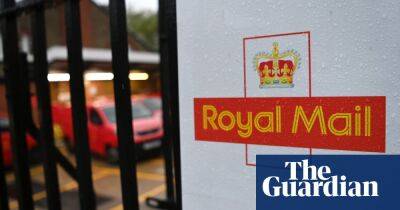Prospect of Royal Mail breakup will not improve workers’ mood on eve of strike
Daniel Křetínský, the billionaire with a 22% stake in the Royal Mail group, never says much – thus his nickname “the Czech Sphinx” – but he picks his moments. On the eve of the first strike at the postal service since privatisation in 2013, he has been revealed to be planning to increase his shareholding.
We know this only because Kwasi Kwarteng’s department told us. In the formal language, the business secretary “reasonably suspects that arrangements are in progress or contemplation” that would lift Křetínský’s stake above 25%. Thus the planned purchase will be reviewed under the new National Security and Investment Act because Royal Mail, as we were reminded during the long months of Covid lockdowns, is still a critical piece of national kit.
Křetínský’s planned manoeuvre adds another layer of complexity to a situation where the stakes were already high. The current industrial dispute may appear to be a conventional one over pay and working practices, but there’s much more going on. The explicit threat from the boardroom is to break the group into two if a deal can’t be done on how Royal Mail runs itself. “We will look for significant operational change or split the company,” says the chair, Keith Williams.
The split in question is the separation of GLS, the international parcels operation run out of Amsterdam and making annual operating profits of £350m-ish, from Royal Mail, the UK business employing 115,000 people and heading for “material” losses this financial year, according to the group’s financial update issued after the Communication Workers Unions announced four strike days.
The break-up option, then, is one that would leave an independent Royal Mail to sink or swim. The business is facing a decline in letter
Read more on theguardian.com








![Why Terra Classic [LUNC] may be poised for a 10% dump in the next few days](https://finance-news.co/storage/thumbs_400/img/2022/9/24/42236_r4p.jpg)












